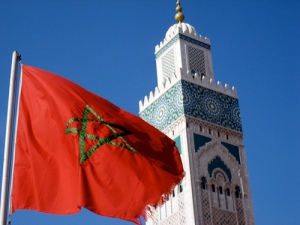It’s an expression devoid of meaning and one that ultimately deceives us: “moderate Islam.” A religious person invested in politics cares not for moderation. As Montesquieu explains in The Spirit of Laws, “the political good, like the moral good, always finds itself between two extremes.” And yet, Islamists the world over know only the extreme even if they would like to reassure us otherwise.
We know that religion and politics, when combined with techniques of modern communication, result in an autocratic system. The machinery of regression, the revocation of civil liberties comes into motion often disguised behind such terms as “normalization” and “authenticity.”
The irrational is married to right objectives. Not only does this fail, but worse, it aggravates problems notably in the economic realm. The recourse to religious principles to combat poverty and corruption is a snare, something totally unsuited to modernity’s principles. One imparts morality to the masses rather than address problems rooted in the economic and political order.
Islam, understood properly, is a beautiful religion: it should remain in hearts and mosques. Moreover, God insists that an individual’s responsibility lies in his or her acts. Islam does not need a religious government for God to dictate what has to be done. And yet political Islamism is generally characterized by direct action against the peoples’ way of life.
It starts with some moralizing preaching and finishes with decrees and laws (fatwas) which govern the daily life of citizens. It curtails thinking or better yet thinks in place of citizens. What good is it to think, to question, to debate since everything is written out in advance?
Morocco has always been Muslim, without ever feeling the need to mix religion and politics. Brotherhoods have always existed, oftentimes shifting amongst themselves, in contrast to the rites of the Maliki, and encouraging critical debates between themselves. Why then is this country today falling into the hands of careerist politicians with populist support and fuzzy agendas? What has happened? I don’t believe in the domino effect; the situation in Tunisia has had nothing to do with what goes on in Morocco since the accession of King Mohammad VI.
An assessment: democracy as an electoral system benefits from a motivated and highly active group on the ground. Add to this the fact that many groups, old and new, Muslims of a rather secular demeanour don’t know how to communicate with the people and, above all, with the distraught youth. Religious discourse is made all the easier.
There was even a candidate of the Party for Justice and Development (PJD) promising a “paradise corner” to those who would vote for him. The worst thing is that it works! Try competing with this idiotic yet effective demagoguery!
Moroccan Islamism was manufactured a long time ago. One may date its emergence to the irresponsible politics of Arabizing education which produced a monolingualism devoted entirely to Islamic thought. I remember in 1971, having left my position as professor of philosophy on the day when the ministry of the interior decided to Arabize education with the undeclared goal of limiting the access of Moroccan students to those texts judged subversive for their philosophy which taught itself to the era in French.
The texts of Nietzsche, Freud, Marx, Weber and many others were replaced with the history of Islamic thought which was taught alongside current streams of thought.
The failed Arabization of the national education system was hastened by the recourse to the private bilingual instruction and openness to other cultures. All the officials in this system were not sparing in their rush to register their children in the secondary schools of the French Mission! The French-speaking (bilingual) graduates found work more easily than those who only mastered Arabic.
A sociological rift hollowed itself out between these two communities. Islamists will recruit in the Arab-speaking milieu, frustrated and marginalized by the establishment.
It’s not this factor alone which helped give rise to political Islam in Morocco. The Iranian revolution, the propaganda work of the Muslim Brotherhood, the importance of the chain of Gulf States, veritable posts of Proselytism, will stimulate the imagination of Moroccans inclined to hear a reassuring speech, all the more when other groups (or parties) have shown their incompetence or their naiveté.
The other important factor is that these elections are not the result of democracy. Of course, the votes took place without interference, without rigging. But the fact that only 45% of those registered moved themselves to vote means that democratic pedagogy was not advanced. For democracy is not a technique but a culture. Morocco never had the time to cultivate a democracy of the spirit.
It takes time; it’s not enough to go vote, but to vote in a spirit that underlines the values of modernity (the rule of law, respect for individuals etc.). And yet, as long as religion mixes with politics, such pedagogy is bound to fail.
Morocco cannot afford to build an economy based on an Islamist experiment. Let’s hope that politicians don’t do too much damage, do not cause tourists to flee nor discourage investors. One will see what they will do once in control.
Even chequered by a coalition government, Moroccan Islamists may risk blocking development of a country where the scourge of corruption and where instability and inequalities are becoming more and more intolerable.
These larger problems will not resolve themselves by prayers, but by a rational mobilization and a political will which makes the struggle against poverty and destitution its foremost priority.
From: “Maroc : l’islam doit rester dans les mosques,” by Tahar Ben Jelloun, writer and poet, in Le Monde Diplomatique, December 5, 2011 http://www.lemonde.fr/idees/article/2011/12/05/maroc-l-islam-doit-rester-dans-les-mosquees_1613522_3232.html
Translated into English by R. Singh
